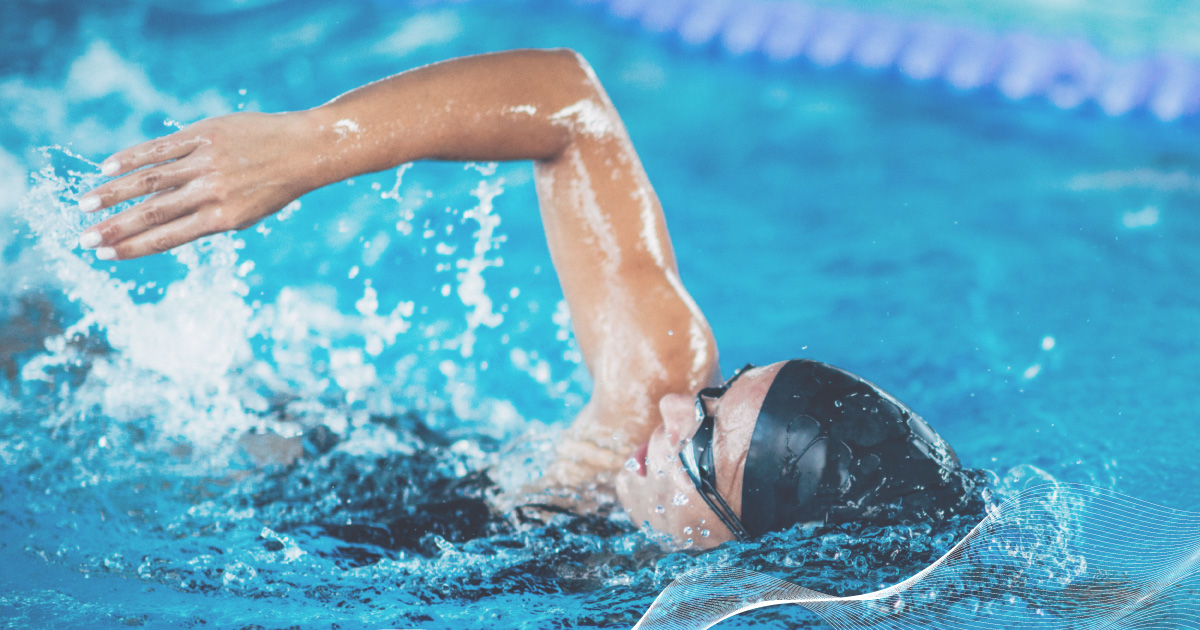Common Swimming Injuries

Swimming offers a number of benefits such as keeping you in shape, providing a refreshing water experience, and helping you stay cool in the summer. But, similar to any form of physical activity, swimming carries the potential for sustaining injuries. Whether you’re a beginner or an expert swimmer, it is important to familiarize yourself with common swimming injuries and take the necessary precautions.
Let’s dive into the details!
Causes of swimming injuries
Swimming injuries can happen from a range of factors that must be considered to prevent recurring problems. Pushing yourself too hard can strain muscles and increase the likelihood of injury. Be aware of your own capabilities in terms of stamina and strength. Some typical causes of swimming injuries include:
- Overuse of muscles
- Poor swimming technique
- Lack of rest
- Lack of conditioning and training
- A sudden increase in training intensity
- Not enough rehabilitation and recovery
Failure to do warm-up exercises and adequate stretching before hitting the water can leave your body ill-prepared for the physical demands of the activity, increasing the risk of sustaining injuries. To prevent excessive muscle strain, it’s important to pay extra attention to the use of proper swimming techniques. Also, pushing your body beyond its limits without allowing for sufficient recovery time can put a strain on your muscles, tendons, and joints, ultimately leading to overuse injuries.
Types of Swimming Injuries
Swimming injuries can range from minor muscle pains to more serious conditions that require a trip to your local San Antonio ER. Some of the most common injuries include:
- Knee injuries
- Shoulder injuries
- Lower back pain
- Neck pain
Additional Conditions
External factors like chlorine levels and water temperature in pools can contribute to injuries like swimmer’s ear or skin irritations. Frequent swimmers may experience swimmer’s ear, an infection of the ear canal that is caused by prolonged exposure to water. Additionally, swimmers frequently experience skin itching, dryness, and rashes due to chlorine.
It is important for swimmers to pay attention to these factors and take appropriate measures to prevent injuries. This includes focusing on improving their technique, implementing effective warm-up and stretching routines, gradually increasing the intensity of their training, and maintaining overall physical fitness.
Seeking Care for Swim Injuries
When it comes to swimming injuries, there are certain situations where seeking emergency medical care is necessary. If you or a loved one encounters any of the following symptoms or conditions:
- Difficulty breathing
- Loss of consciousness
- Heavy bleeding from an open wound
- Suspected spinal injury
- Numbness
- Inability to move
- Severe pain
- Loss of sensation
- Tingling
- Muscle weakness
Seek medical attention immediately at your nearest emergency facility.
Regardless of the hour, Physicians Premier is always available to give you the care you need during your critical moments. Whether you’re grappling with a knee strain or a severe shoulder impingement, your local San Antonio ER is located near you, with a caring staff that is always ready to provide fast and effective care. Find your nearest location by visiting our website today.
Sources:
“Swimming Overuse Injuries,” Physiopedia, https://www.physio-pedia.com/Swimming_Overuse_Injuries
“Swimming-related Illnesses,” Centers for Disease Control and Prevention, https://www.cdc.gov/healthywater/swimming/swimmers/rwi.html
“Swimming Injuries: Tips, Prevention, and Treatment,” UPMC, https://www.upmc.com/services/sports-medicine/for-athletes/swimming
“Swimmer’s Ear,” Cleveland Clinic, https://my.clevelandclinic.org/health/diseases/8381-swimmers-ear-otitis-externa


